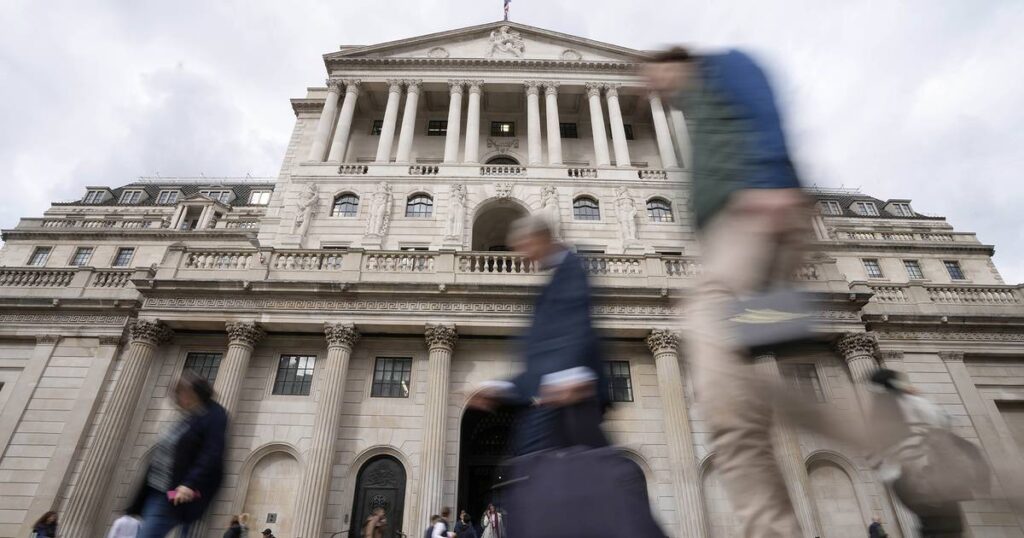In an effort to combat persistently high inflation brought on by Russia’s invasion of Ukraine and the terrible economic policies of former Prime Minister Liz Truss, the Bank of England is anticipated to announce its largest interest rate increase in three decades on Friday.
Following a return to a 40-year high in consumer price inflation in September, economists anticipate the bank will increase its benchmark interest rate by at least three-quarters of a percentage point, to 3%.
The interest rate decision is the first since Truss’ government announced unfunded tax cuts of 45 billion pounds (NZD$90 billion), which caused instability in the financial markets, increased mortgage rates, and ultimately led to Truss’ forced resignation after only six weeks in power. In an effort to repair the harm and demonstrate that Britain is dedicated to paying its debts, her successor, Rishi Sunak, has warned of budget reductions and tax rises.
It’s anticipated that this rate increase will be the Bank of England’s seventh consecutive and biggest since 1992. It follows the US Federal Reserve’s announcement of a fourth straight three-quarter point increase on Wednesday as central banks around the world battle inflation that is lowering living standards and hampering economic development.
According to Luke Bartholomew, senior economist at abrdn, the UK central bank may decide to raise rates by as much as one percentage point to demonstrate that it is serious about combating inflation after receiving criticism for being reluctant to move earlier this year.
“The Bank of England will try to look through the volatility caused by the government’s policy and gas price movements, and focus on underlying inflation pressure,’’ Bartholomew said in a note to investors.
“However, given the impact on household spending of such large inflationary moves, and the risk to inflation expectations, it adds a further complication to an already very difficult policy decision. ”
After initially believing that foreign causes outside of their control were driving price increases, central banks have failed to manage inflation.
As it became apparent that inflation was permeating the economy and feeding through increasing borrowing rates and wage demands, their response grew more fervent in recent months.
Due to the disruption of natural gas, grain, and cooking oil imports, the war in Ukraine raised food and energy costs globally. As the world economy started to recover from the Covid-19 outbreak last year, this increased the inflation that had already started.
A rise in natural gas prices that occurred as a result of Russia reducing its fuel exports in response to Western sanctions has notably hurt Europe.
As wholesale gas prices soared five-fold in the 12 months leading up to August, the UK likewise had difficulties.
The British government set an energy price restriction in an effort to protect consumers. But after the turmoil caused by Truss’ economic policies, Treasury chief Jeremy Hunt limited the price cap to six months instead of two years.
Meanwhile, food prices have jumped 14. 6% in the year through September, led by the soaring cost of staples such as meat, bread, milk and eggs, the Office for National Statistics said. This brought consumer price inflation back up to 10.1%, the highest level since early 1982 and the same as it was in July of last year.
According to the British Retail Consortium, even the “humble” cup of tea that people resort to across the nation when they need a respite from the stresses of daily life is becoming more expensive due to price increases for tea bags, milk, and sugar.
According to Helen Dickinson, the consortium’s chief executive, “although some supply chain costs are beginning to reduce, this is more than countered by the cost of energy, implying a challenging time ahead for retailers and homes alike.”
By pushing the pound to a record low versus the dollar, endangering the viability of some pension funds, and sparking fears that the Bank of England would raise interest rates more than anticipated, Truss’ failing economic plan made matters worse. As a result, lenders raised the prices of their mortgage products.
According to research issued this week by Hamptons, a UK real estate agency, many young people are finding homeownership to be increasingly out of reach due to the economic instability.
An average mortgage rate is six. 5%, up from 2% a year prior.
In light of this, Andrew Bailey, governor of the Bank of England, declared last month that policymakers “would not hesitate” to raise interest rates in order to bring inflation back to the bank’s 2% target.
The UK is prepared to implement the largest interest rate increase in three decades.

